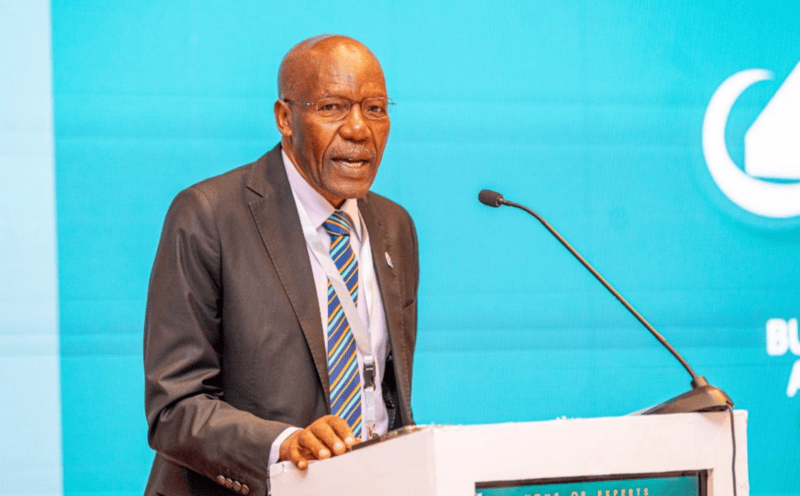Emerging businesses in Kenya faced toughest years in 2024 and 2025, experts say

Eric Kimani, a business commentator and Executive Director of Palmhouse Dairies Limited, noted that the environment for young businesses is currently more challenging than it has been in the past years.
Kenyan startups faced unprecedented challenges in 2024, and the tough economic conditions are still prevailing through 2025, making it one of the most difficult periods for newly established businesses.
This is according to business leaders and financial experts who spoke at a Nairobi event on Friday.
More To Read
- Over half of circular economy workers lack protection, ILO report finds
- Ruto backs IMF partnership as key to Kenya’s debt, economic reforms
- Tough decisions stabilised the economy, saved Kenya from shame – Ruto
- World Bank upgrades Kenya’s growth outlook to 4.9 per cent, warns of elevated risks
- Proud moment for Kenya as three homegrown startups storm into Africa’s MEST Challenge semi-finals
- Top 10 largest African economies in 2025 by Gross Domestic Product (GDP)
Eric Kimani, a business commentator and Executive Director of Palmhouse Dairies Limited, noted that the environment for young businesses is currently more challenging than it has been in the past years.
“The years 2024 and 2025 so far have been particularly challenging for emerging enterprises in the country, more difficult than it was in any other year before,” Kimani said.
He pegs this on harsh tax policies, shrinking consumer demand and a general decline in business confidence.
In a candid reflection, however, Kimani says survival odds vary significantly by sector, but generally, all startups are under pressure.
He categorically states that taxation remains a major concern, with businesses now surrendering up to 35 per cent of earnings to taxes, up from 30 per cent before 2023.
 Palmhouse Dairies Limited Executive Director Eric Kimani. (HANDOUT)
Palmhouse Dairies Limited Executive Director Eric Kimani. (HANDOUT)
Combined with falling consumer spending, he emphasises that this has squeezed both profit margins and operating capital, especially for the upcoming enterprises.
“We are living in very, very challenging times at the moment. Businesses are shrinking, companies are folding and laying off employees.”
His counterpart, Michael Kimani, Senior Partner and Chairman of the audit and accounting firm MGK Consulting, echoes his sentiments.
Tasked with a core mandate of analysing and safeguarding the financial health of firms, Kimani observed that over the past two years, most businesses in the country, particularly young and growing ones, have faced significant challenges.
He describes the past 18 months as generally tough for the business environment.
The two made their remarks on Friday during MGK Consulting’s 25th anniversary celebration.
Recent reports have also highlighted a harsh reality for Kenyan startups, showing that a majority fail to achieve full growth or successfully transition into large-scale enterprises.
Insights by the Kenya Association of Manufacturers (KAM’s) SME Hub in April revealed that among the startups born in Kenya, only two per cent make it to full transition, from small to medium and eventually to large-scale enterprises.
This is against the five per cent global average.
Additionally, a report by the Communications Authority of Kenya revealed that nearly 80 per cent of startups in the country die within the first year of operation.
Only three to five per cent were noted to make it beyond the one-year period of survival.
Top Stories Today

















































